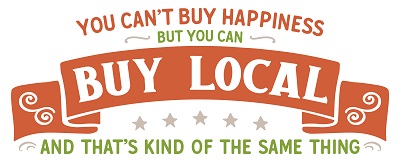 Choosing to follow a clean eating plan is a way that you can get rid of foods that aren’t healthy for you in favor of ones that are. By choosing wholesome foods like fruits and vegetables, whole grains and staying away from processed foods, you can improve your health.
Choosing to follow a clean eating plan is a way that you can get rid of foods that aren’t healthy for you in favor of ones that are. By choosing wholesome foods like fruits and vegetables, whole grains and staying away from processed foods, you can improve your health.
You’ll feel better, gain a boost in your immune system and have more energy to boot. Unfortunately, if you don’t know how to create a clean eating plan the right way, you can end up with something called orthorexia.
What is Orthorexia?
While clean eating is certainly a way of eating that’s good for the body, some people take it to the extreme. They become so obsessed with healthy eating that they choose to ignore certain foods or entire categories of food because they think the food is dangerous.
They focus their attention on foods that they believe are natural, gives them only positive health benefits and can detoxify the body. This belief is in fact, an eating disorder when fear develops of eating anything else.
The right way to embark on a clean eating program is one that is helpful to the body and personally satisfying. But when it becomes all that the person can focus on, it can become an obsessive mindset.
When you have an obsessive mindset about food, it can lead to things like limiting your food intake to the point that your body can’t function. You can drop your calorie count so much that you end up developing anorexia.
When you start to cut out more and more foods from what you can and can’t have to eat, it can cross the line between healthy and unhealthy eating. You can eat healthy, natural foods and follow a clean eating plan but cut back on your food intake so much that your body is no longer getting the nutrients that it needs.
Not only can this lead to a calorie restricting diet that’s bad for you, but you can cause damage to your organs. In order to work correctly, your body has to have a certain amount of proteins.
It also has to have plenty of foods like leafy green vegetables, other vegetables and fruits. You also need to have some form of fat in your diet. Cutting out all fats isn’t a good idea when it comes to wanting to eat healthy.
There is a difference between orthorexia and anorexia. With orthorexia, people with the condition have a tendency to pay strict attention to the quality of the food.
The focus is more on whether the food is healthy and pure and organic. With someone who’s struggling with anorexia, it’s the amount of the food rather than the quality of food that’s the issue.
The danger, however, in orthorexia, is that it doesn’t take much for the obsession with eating pure to spiral out of control and become a deep rooted eating disorder that can negatively impact the health of the person.
This is the biggest danger of orthorexia. If the wrong focus on eating clean isn’t changed, it can become a mindset that’s simply too difficult for some people to overcome on their own.
They become so picky that no food is good enough, and they end up eating so little that it resembles a case of anorexia as their frame whittles away and internal damage is done.
How to Recognize if You or a Loved One is Suffering
Having a lifestyle where you practice clean eating is a good thing. There are so many health benefits you can reap if you do it. But when it crosses over into orthorexia, then something has to be done.
To understand what you’re dealing with, you have to first learn to recognize the signs and symptoms that you or someone you care about is struggling with the condition.
With orthorexia, one of the first things that’s pretty noticeable is that there will always be changes in the way that a person acts toward food. It starts with an obsessive mindset about the types of foods that you or someone you care about will allow themselves to eat.
The type of food that’s chosen will become a huge deal. You’ll notice that you or your loved one is spending a lot of time planning out the foods that are going to be eaten.
This amount of time will be over the top and become the single most important issue in your life. Along with the excessive time spent planning what foods you’re going to eat, the act of going to buy the food and shopping for it will also radically change.
There won’t be any more quick trips to the store. Choosing the food inside the store will take a lot of extra time as the food items chosen must be “just right.” After the food is purchased and brought home, a lot of time will be spent in getting the food ready to eat.
It will become almost like an art form – and the time it takes to ready the food will increase drastically. Once the food is ready to eat, the time spent eating the food will also increase.
You’ll notice that the act of eating the food is no longer about spending time with friends or family having a meal. Because the meal itself will be the focus. Some people relate the obsession that turns into orthorexia as a similar obsession a person feels when they need a fix from a drug addiction.
In addition to being overly focused on foods that are “allowed,” there will be a change in the way one perceives foods that are not allowed. You’ll notice that someone who is suffering from orthorexia can’t stand to be around foods that aren’t clean foods.
It’s not just the physical act of eating that you’ll see change, either. People who begin to view eating through the lens of orthorexia develop psychological changes in how they treat food.
They will have a firm, unshakable belief that the foods they choose hold a power that ordinary foods don’t have. They will believe that by not eating the “bad” foods that they’re going keep anything bad from happening to their bodies.
They believe if they follow a clean eating plan, it means they’ll never end up getting cancer or develop heart disease or have a stroke. They believe that if they do have a medical condition such as cancer that clean eating is automatically going to get rid of every last cancer cell and their health will return to normal.
People who suffer from orthorexia believe that clean eating is the answer to whatever ails them. People who have orthorexia have a “my way or the highway” attitude about clean eating, too.
They think that if anyone eats something that they don’t, then they’re wrong or not enlightened. They also believe that people who don’t eat the same way that they do aren’t as healthy.
Orthorexia can make people have a distorted image of weight loss. They’ll look at their bodies in terms of good or bad eating. Foods that aren’t clean mean they’ll get fat and foods that are clean mean they’ll have a healthy body weight and never get sick.
What they can’t realize is that orthorexia often leads people to become very ill because their body is lacking in nutrients. Plus, the strict limiting of food will lead to rapid weight loss to the point that the person’s BMI drops to an unhealthy level.
Orthorexia isn’t something that someone can simply snap out of because it’s a deep rooted belief about food. However, if it’s not addressed, the decline in health will continue to the point that the person could become dangerously ill or even die.
You need to watch for certain signs such as not wanting to eat in front of anyone else. An obvious weight loss with no interest in most food. Pay attention to anyone whose diet is so strict that there are very few foods on the list of what they will eat.
If someone looks like they’ve lost weight to the point of being gaunt, that can be a symptom of orthorexia. If someone experiences anger, crying, embarrassment, shame or emotional outbursts because they ate the “wrong” foods, that’s another clue pointing toward the condition.
Anyone who wants to spend more and more time practicing clean eating fasts for the purpose of repeated, prolonged detoxifying is a sign that the person is suffering from orthorexia.
You must understand the actions of someone with orthorexia is based on a compulsion and needs to be addressed so that the proper mindset toward clean eating can be restored.
Orthorexia can Easily Transform into Anorexia
Orthorexia begins when someone becomes so obsessed with the quality of food that they eat that it takes over their life. Anorexia begins when someone becomes so obsessed with the scale, their image and the amount of food that they eat that it takes over their life.
There is a compulsive behavior at the root of both conditions and orthorexia can easily swing over and become anorexia because the thoughts and actions of both are often parallel.
There is a strong belief between choosing food that affects your health to the point of becoming irrational. The amount of and types of foods eaten grows noticeably smaller, often restrictive to the point that list of what you can eat is only handful of items.
Orthorexia, like anorexia, can impact your daily life. It can lead to withdrawing from social events because of the beliefs and actions about foods. Both conditions can cause the one suffering from either to feel a deep sense of shame in regards to eating food.
There are strict beliefs that must be adhered to and to violate those beliefs leads to self criticism and feelings of unworthiness. The amount of time spent planning, buying and preparing food escalates to the point that it can take up a good portion of your day.
Food becomes one of the main things that you think about in both types of eating disorders. Feeling upset, anxious or out of sorts if the foods you’ve limited yourself to are not available.
If anyone points out that your eating habits are unhealthy, it makes you feel extremely upset. The basis of both conditions is found in the burning need to try to create order or have control over your life.
People with the conditions try to find self worth in making sure they keep tight control over what they eat. Making sure you stick with the foods that you consider okay is something that you must do and it becomes an obsession to the point that you’ll make extreme decisions centered around the food.
With orthorexia, people are focused on getting healthy to the point they can’t see that they’re not healthy. With anorexia, people are focused on losing weight to the point that they can’t see that their weight is no longer healthy. Both conditions drive the person to seek to purify their bodies and food or the lack of it is the way they do this.
Putting an End to Unhealthy Health-Obsessed Eating
Clean eating is good for you if it’s done correctly. Once someone puts an end to having an unhealthy obsession with the wrong thinking about food, there’s no reason why they can’t enjoy the healthy aspects of clean eating.
There’s not a huge list of things you need to obsess over. It’s simply about making healthy changes. You can start by watching your processed foods but don’t eliminate them.
Don’t make any food a “bad” food. Instead, focus on packaged foods that are healthy. There are some out there that have only a little amount of processing and they’re not unhealthy.
Pay attention to the amount of vegetables that you eat and make sure that you don’t skimp on these. You need the vitamins and minerals that these foods give your body.
They’re healthy and low in calories so they’re good for you to eat even in large quantities. You do want to watch the saturated fats, but don’t eliminate fat from your diet because that’s not healthy.
Instead of saturated fats, look for ones that are actually good for your body such as olive oil. Make sure that you don’t overdo it on the alcohol. While you can have some even on a clean eating plan, just don’t have more than you should.
Choose drinks that offer health benefits for your body such as red wine. Watch out for the sugar that you consume because sugar can be addictive – plus, too much of it isn’t good for your body.
You don’t want to say never and get into the mindset that causes you to label foods. Just look for foods that have a lower amount of sugar in them if you plan to have something sweet.
When you refuse to make any food off limits, it won’t become a compulsion that can lead to an obsession with not having it. If you have a sweet tooth, natural sugar – such as from an apple – can satisfy the craving as easily as a sweet like candy will.
Look for foods that don’t have any additional salt since salt is something that if it’s in high quantities isn’t healthy. Have your clean eating plan filled with whole grain foods since these are loaded with nutrients, fiber and help keep you feeling full.
If you eat meat, choose meats that are lower in fat and ones that are better for you like fish or poultry. The key to clean eating with the right mentality means not focusing on the food or even how much healthier it is. It’s simply a lifestyle change that can help you live longer, happier, and more fulfilled.



